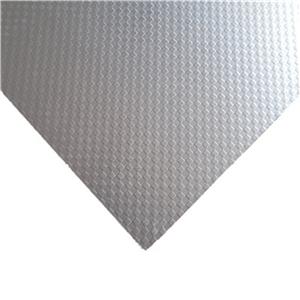Vietnamese timber export enterprises are actively looking for ways to solve difficulties
Since the end of 2022, the wood processing and export industry has faced many difficulties, with export turnover continuing to decline due to foreign inventories and consumer cuts in spending on non-essential items.
Due to the lack of new orders, timber exporters must find ways to overcome the difficulties in the last months of 2023.
Consumers tighten their belts
As a non-daily necessity, deep-processed wood products are no longer the first choice of consumers around the world. Over the past six months, world market volatility has strongly affected all walks of life.
Economists estimate that inflation, recession, volatile fuel prices, and a lack of revenue sources have led consumers in many countries to implement austerity spending programs.
Most consumers only spend money on essential and cheap food to maintain a stable standard of living and overcome difficult times due to reduced income and rising prices in these markets. Therefore, deeply processed wood products such as interior decorations, bedroom decorations, and office supplies are considered by consumers and reused old items.
According to statistics from the Ministry of Agriculture and Rural Development, Vietnamese wood products have been sold to markets in more than 140 countries and regions. This impressive figure makes Vietnam rank fifth in the world, second in Asia and first in Southeast Asia in terms of timber and wood products exports. Global wood products market share 6%. In the wood processing and export industry, more than 5,400 enterprises have invested in the production and processing of wooden furniture.
Mr. Du Chun Li, Chairman of the Vietnam Timber and Forest Products Association, said that in addition to consumers reducing the consumption and use of wood products, a number of policies of the authorities of importing countries have also brought new difficulties to wood processing and export enterprises.
For example, since mid-May 2023, US authorities have conducted antidumping and countervailing duty evasion investigations on Chinese quartz products for allegedly transferring them to Vietnam, assembling them into wooden furniture, especially wooden cabinets, and then exporting them to the United States. to avoid anti-dumping duties/CTC. Therefore, wood processing and exporting companies must carefully consider adding traceability of multiple aspects of wood products to this market.
Wood processing companies, in particular, also have to deal with consumption fluctuations and must find ways to cope with the current situation.
Mr. Tran Thanh Son, President of the Trade Union of Mai Song Ngoc One Member Limited Liability Company (Ho Chi Minh City), shared that customers are now very afraid of stocks, especially those of deep-processed wood products, furniture, etc. This has led to a continuous decrease in the number of orders from the end of 2022 to the present, from thousands of products to hundreds. Companies are no longer as "picky" as they used to be.
In order to always have orders, business owners actively look for old "customers", accepting customers who have once declined. In addition, the company accepts orders that are difficult to process at low prices. This is the solution that wood processing companies offer to find and use each order to maintain their production activities.
Despite the significant decline in timber exports in the first half of 2023, there are still growth groups in the product. Among them, the export value of fiberboard products to India was nearly 32 million US dollars, an increase of 3 times year-on-year.
Taking wood chip products as an example, exports exceeded US$1 billion in the first half of this year, an increase of 3% over the same period in 2022. China and Japan remain the two main markets for Vietnam's wood chip exports. Ms. Cao Thi Jin, a representative of the Vietnam Timber and Forest Products Association, said that exports to China accounted for more than 70%.
The Vietnam Timber and Forest Products Association also said that it is expected that in the near future, the demand for pellets in the Korean market will increase again, and the consumption will reach 100,000 tons/month. In Japan, Vietnamese companies have signed long-term tablet supply contracts for 2 to 3 years. It can be seen that South Korea and Japan (98% of the total), the two major import markets for Vietnamese tablets, are showing good signals.
After the boom in energy supply, including biomass fuels, the European market gradually stabilized. However, with a strong commitment to reducing emissions and increasing bioenergy use, the price and volume of pellet exports will recover from the last months of 2023. This bodes well for Vietnam's timber industry. At the same time, many companies are finding ways to find new customers for the next phase of the timber industry to cope with the current difficulties.
Mr. Patrick Mui, Managing Director of Centdegrés Vietnam, estimates that furniture entering the European market is expected to grow by 4.27% per year during 2023-20, with the decorative segment of the European market considered a niche market.




